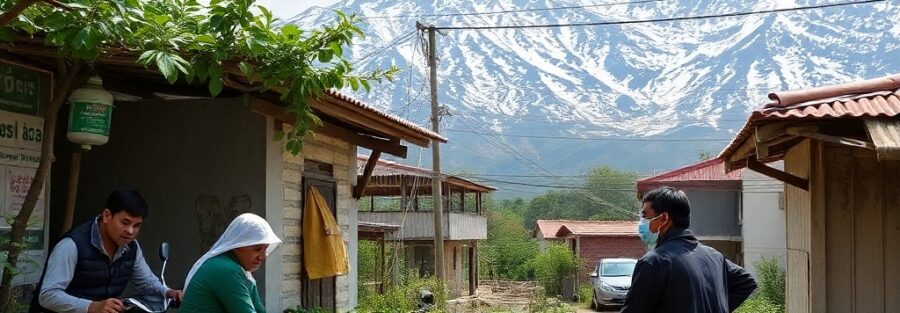Green business refers to enterprises that prioritize environmentally friendly practices while striving for economic profitability. These businesses focus on sustainability, renewable energy, and eco-conscious innovations to address the pressing challenges of climate change and environmental degradation. In Khyber Pakhtunkhwa (KP), a province rich in natural resources and biodiversity, the potential for green business is immense. With its scenic landscapes, abundant hydropower resources, and growing awareness of sustainability, KP is poised to become a leader in clean energy and eco-friendly initiatives. This article explores the opportunities, challenges, and future prospects of green business in KP, shedding light on its role in shaping a sustainable future.
Current State of Green Business in KP
KP has already taken significant steps toward fostering green business and clean energy. Initiatives like the Billion Tree Tsunami project have highlighted the province’s commitment to sustainability. Similarly, investments in hydropower projects, such as the Gorkin-Matiltan Hydropower Project, demonstrate KP’s focus on renewable energy. However, the province faces several challenges, including limited infrastructure, inadequate funding, and policy gaps. Despite these hurdles, KP’s green business sector is slowly gaining momentum, with private enterprises and governmental bodies working collaboratively to address environmental issues and create eco-friendly solutions.
Government Policies and Incentives
The government of KP has introduced various policies and incentives to promote sustainable development. These include tax exemptions for renewable energy projects, subsidies for solar power installations, and grants for eco-friendly startups. The KP Climate Change Policy emphasizes the need for clean energy adoption and sustainable practices across industries. Additionally, international partnerships, such as collaborations with the World Bank and UNDP, have provided financial and technical support for green initiatives in the region. These policies aim to create a conducive environment for businesses to adopt sustainability and contribute to KP’s economic growth.
Key Opportunities in Sustainability and Clean Energy
Renewable Energy Sector
KP’s abundant water resources make it an ideal location for hydropower projects. With rivers like the Swat and Kunhar, the province has the potential to generate significant amounts of clean energy. Solar energy is another promising avenue, with sunny days available for most of the year, providing opportunities for solar farms and rooftop installations. Wind energy, though less explored, can also be harnessed in specific regions.
Sustainable Agriculture and Food Production
Eco-friendly farming practices, such as organic farming and precision agriculture, present opportunities for sustainable food production. These methods not only reduce environmental impact but also improve crop yields and quality. KP’s fertile land and diverse climate are well-suited for such initiatives.
Eco-Tourism
KP’s breathtaking landscapes, including valleys like Swat and Chitral, make it a prime destination for eco-tourism. Promoting sustainable tourism practices, such as waste reduction and conservation efforts, can attract environmentally conscious travelers while preserving the natural beauty of the region.
Recycling and Waste Management
Recycling and waste-to-energy projects offer immense potential for reducing environmental pollution. Establishing facilities for sorting and processing waste can create a circular economy, turning waste into valuable resources and energy.
Role of Private Sector and Entrepreneurs
The private sector and entrepreneurs play a crucial role in driving green business initiatives in KP. Local startups are exploring innovative solutions, such as biodegradable packaging and renewable energy technologies. Collaborations with NGOs and international agencies have further supported these ventures. Successful examples include companies that produce solar-powered appliances and organizations promoting sustainable farming. Encouraging entrepreneurship in green business can create new opportunities and inspire others to adopt eco-friendly practices.
Technological Innovations
Technology is a key enabler of sustainable practices and clean energy adoption. Smart grids, which optimize electricity distribution, and IoT devices, which enhance energy efficiency, are transforming the renewable energy landscape in KP. Emerging technologies, such as energy storage systems and advanced recycling techniques, offer innovative solutions to longstanding environmental challenges. By leveraging these advancements, KP can accelerate its transition to a sustainable future.
Impact on Employment and Economic Growth
The green business sector has the potential to create numerous employment opportunities in KP. Jobs in renewable energy, eco-tourism, and waste management can provide livelihoods for thousands of individuals. Moreover, the economic benefits of green business extend beyond job creation. By reducing dependence on imported energy and fostering local industries, KP can enhance its economic resilience and contribute to national GDP growth. Green businesses also attract investments, further boosting economic development in the region.
Challenges and Solutions
Despite its potential, the green business sector in KP faces several challenges. Infrastructure limitations, such as inadequate power grids and transportation networks, hinder the growth of renewable energy projects. Policy implementation issues and regulatory hurdles also pose significant barriers. To overcome these challenges, KP needs to invest in capacity building, streamline regulations, and foster partnerships with private and international stakeholders. Public awareness campaigns can also play a vital role in promoting sustainability and encouraging community participation.
Future Outlook
The future of green business in KP looks promising. By 2030, the province is expected to witness substantial growth in renewable energy capacity and sustainable industries. Education and awareness programs will play a critical role in fostering a culture of sustainability. Additionally, advancements in technology and increased investments will drive innovation and efficiency in green business practices. With continued efforts from the government, private sector, and communities, KP can emerge as a leader in sustainability and clean energy.
Conclusion
Green business represents a transformative opportunity for KP, offering solutions to environmental challenges while driving economic growth. The province’s rich natural resources, coupled with supportive policies and innovative technologies, provide a strong foundation for sustainable development. By embracing green business and clean energy, KP can secure a brighter and more sustainable future for its people and environment. Stakeholders must work collaboratively to realize this vision, ensuring that KP remains at the forefront of the global green economy.

